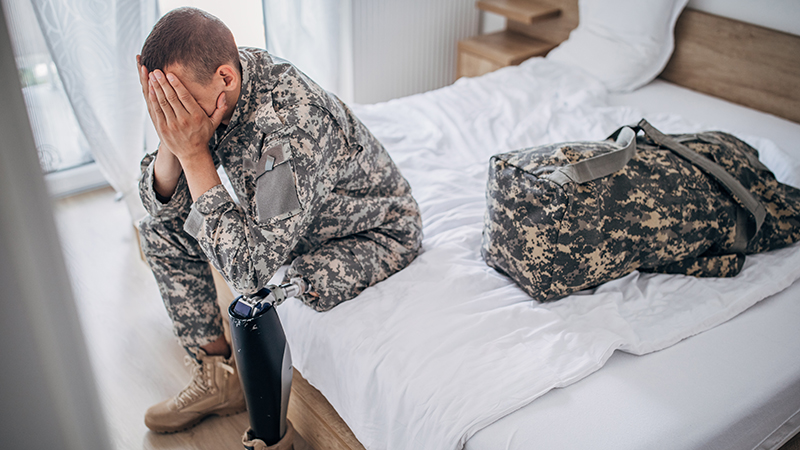
A study led by a University of Missouri School of Medicine researcher has established that cognitive behavioral therapy (CBT) is an effective first-line treatment for insomnia among individuals with alcohol use disorder, regardless of abstinence from alcohol. It is the first study to document that treating insomnia with CBT reduces the negative outcomes associated with excessive drinking.
Prior research has established that insomnia is common in those with alcohol dependence. Because alcohol disrupts sleep and can maintain insomnia symptoms over time, abstinence from alcohol is recommended as the first step in improving sleep. However, following abstinence, many patients continue to struggle with sleep disturbances, which decreases the likelihood of treatment completion and increases the risk of relapse.

“We wanted to test the feasibility and efficacy of CBT with individuals early in their treatment for alcohol use disorder,” said lead researcher Mary Beth Miller, PhD, assistant professor of psychiatry at the University of Missouri. “The typical standard of care is to wait to provide CBT for insomnia to patients with alcohol use disorder until they are abstinent from alcohol for four weeks. We wanted to see if CBT could improve insomnia symptoms and reduce alcohol-related harm before abstinence from alcohol use was established.”
Working in collaboration with the Harry S. Truman Veterans Affairs hospital in Columbia, Missouri, the research team recruited 67 veterans in a VA addiction treatment program to participate in a randomized clinical trial. The veterans met criteria for insomnia and alcohol use disorder. Participants were randomly assigned to five weekly sessions of CBT or one single session of sleep hygiene treatment, which involved a study therapist recommending bedtime routine changes, such as limiting caffeine.
CBT is a structured, non-medication-based therapy that helps individuals understand their symptoms, why they occur, and how to prevent them from continuing. It is often the preferred type of therapy for mental health disorders, such as depression or anxiety. In CBT for insomnia, participants learn about how insomnia develops, the factors that maintain their symptoms, and how to avoid insomnia moving forward.
In Miller’s study, CBT out-performed sleep hygiene in reducing insomnia severity, and this improvement in insomnia reduced participants’ alcohol use, cravings, and negative behaviors associated with alcohol consumption over time. This is a significant finding because it challenges current recommendations to postpone CBT insomnia treatment until patients have achieved four weeks or longer of abstinence from alcohol.
“CBT not only reduced insomnia symptoms among adults in early alcohol recovery – it also reduced the problems they experienced from drinking,” said Dr. Miller. “We shouldn’t wait until people are abstinent to provide evidence-based treatment. We should give them the treatment they need when they’re open to it.”
Effect of Cognitive Behavioral Therapy for Insomnia on Alcohol Treatment Outcomes Among US Veterans: A Randomized Clinical Trial was recently published in JAMA Psychiatry. The study was supported by funding from the National Institute on Alcohol Abuse and Alcoholism. This study follows a 2020 study led by Miller that found that CBT is effective in reducing insomnia symptoms among young adults who reported recent binge-drinking episodes.





